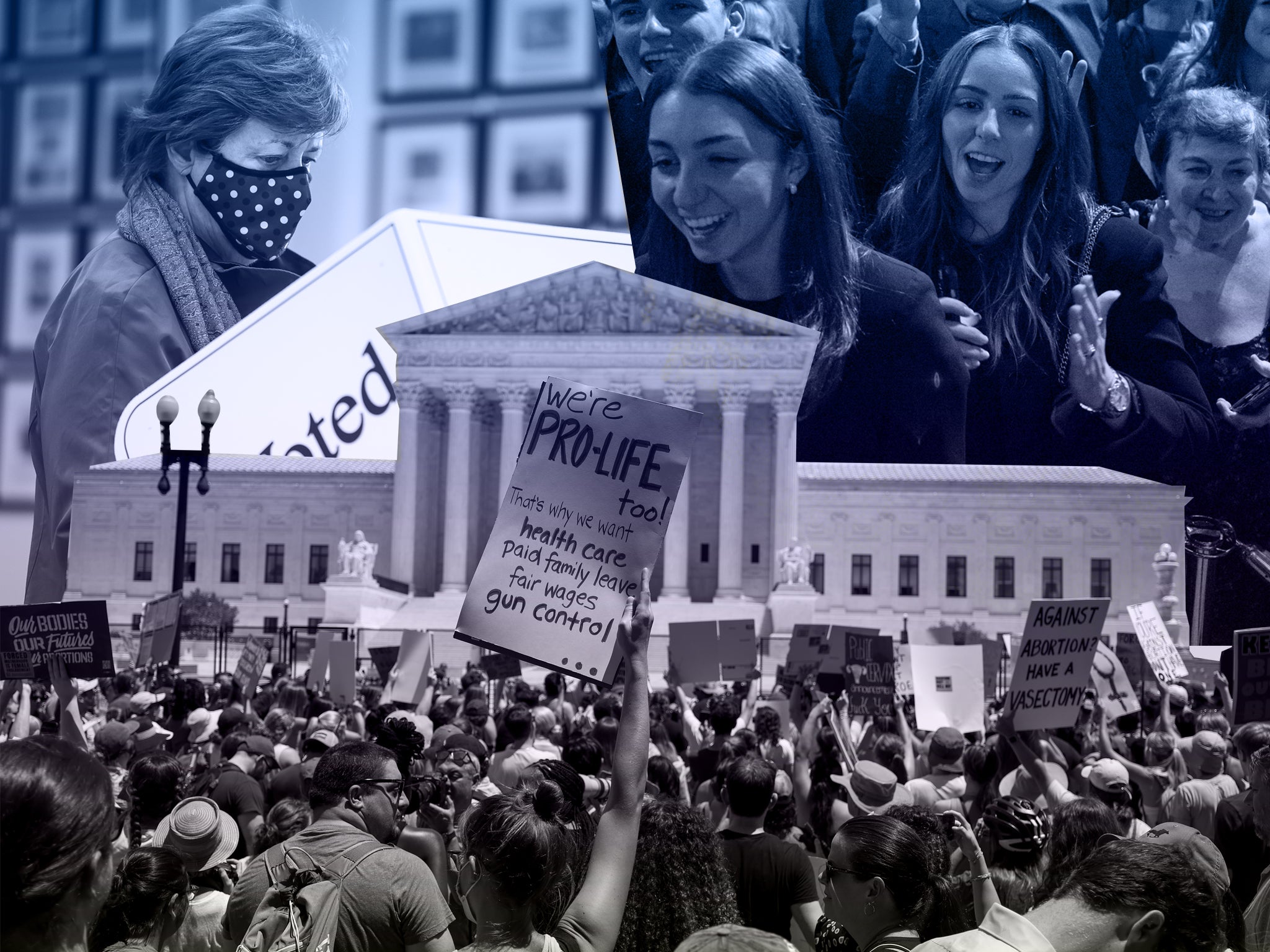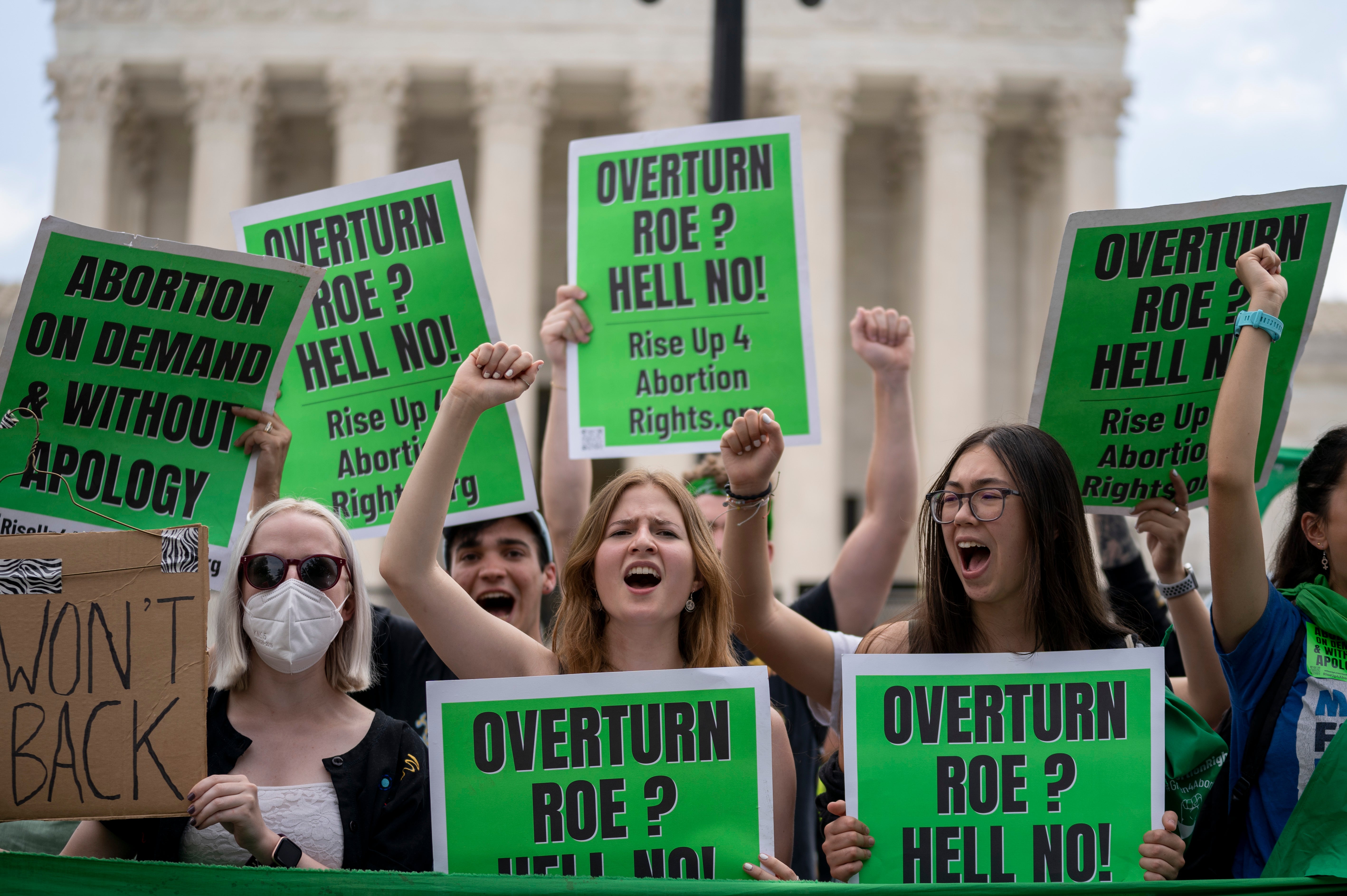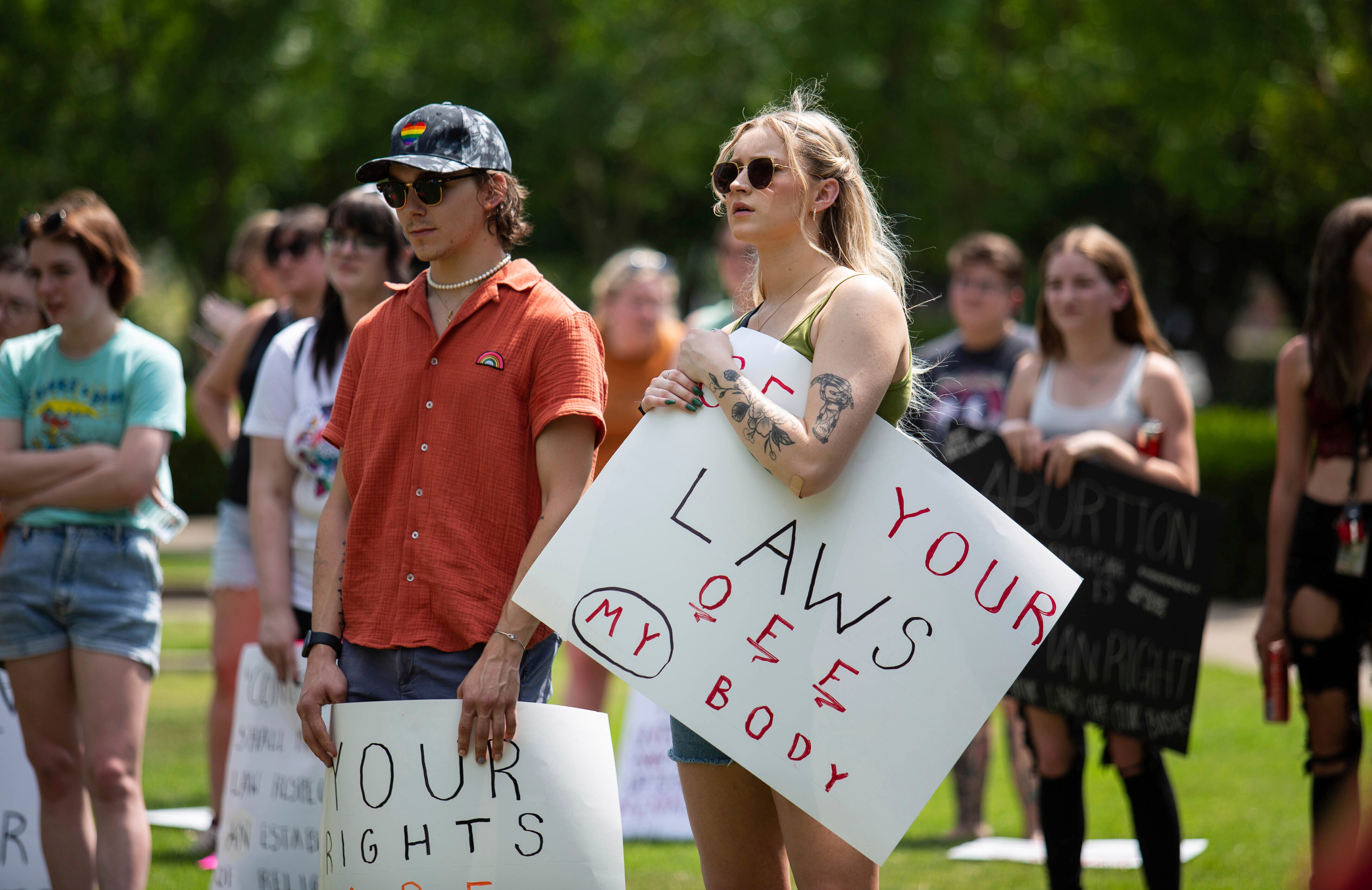How ‘women just went crazy’ and saved the Democrats in the midterms
Activists and organisers explain to John Bowden how polls and pundits underestimated the issue of abortion in the midterms

Your support helps us to tell the story
From reproductive rights to climate change to Big Tech, The Independent is on the ground when the story is developing. Whether it's investigating the financials of Elon Musk's pro-Trump PAC or producing our latest documentary, 'The A Word', which shines a light on the American women fighting for reproductive rights, we know how important it is to parse out the facts from the messaging.
At such a critical moment in US history, we need reporters on the ground. Your donation allows us to keep sending journalists to speak to both sides of the story.
The Independent is trusted by Americans across the entire political spectrum. And unlike many other quality news outlets, we choose not to lock Americans out of our reporting and analysis with paywalls. We believe quality journalism should be available to everyone, paid for by those who can afford it.
Your support makes all the difference.After voters shocked pundits in the Washington DC media sphere and made the 2022 midterms a clear referendum on the fall of Roe v Wade, abortion rights activists had a simple message for pollsters: It’s the economy, stupid.
Examining the gulf between expectations and reality after Democrats pulled off a strong showing in Tuesday’s midterm contests and were, on Thursday, within reach of majorities in both chambers, it appears that a simple disconnect over the issue of abortion rights and what “healthcare” really means in America is the reason why so many in DC were caught off guard by the results.
Activists and organisers who spoke to The Independent as the final races puttered along this week explained that the error made by pollsters, pundits and even some in the Democratic Party itself came down to separating abortion rights from the issue of the very real economic pain felt by millions of Americans today. They’re actually very related issues, according to organisers, who argue that Democrats need to do more to connect with voters on the issue of abortion care and what GOP-led efforts to ban it means, economically, for American families.
“You know, most people when they’re thinking about having an abortion are thinking about, like, when and how to have families. The decisions that they have in front of them are very significantly economic,” explained Rachel O’Leary Carmona, executive director of the Women’s March.
“[W]hen women are talking about the issue of abortion, we are talking about the economy,” she said. “I think the Democrats need to speak better to the lived experience of the people who, you know, they want to earn their votes.”
Jim Messina, who headed up Barack Obama’s 2012 reelection campaign, told Fox News that protecting abortion rights was a key motivator driving women to the polls.
“Abortion is becoming the issue that is driving turnout,” Mr Messina told Fox. “Last night, exit polls, Democrats win independents in a non-presidential year. No polls saw that coming, and it was because these women just went crazy.”
So far, exit polls indicate that women were not a larger proportion of the electorate than usual. What actually happened should be even more concerning for Republicans: More Americans considered the issue to be among their highest concerns when they headed to the polls, regardless of gender, and delivered Republicans a defeat that months’ worth of messy generic ballot polling and even issue-based surveying led some to believe was an impossible prospect.

Women were more likely than men to rank the issue of high importance, but the real divide was age-based; younger Americans appear to have responded to the Dobbs decision most strongly, with more than four in 10 voting with the issue on the top of their mind. Whatever the case, the issue ranked higher than ever before among voters’ top issues in exit polls on Tuesday.
For many younger Americans, the bleak economic prospects that many are presented with when asking the question, “Should I start a family?” are likely coming into play. Raising a child is a hugely expensive prospect, even more so now that it was in decades past thanks to soaring childcare and healthcare costs, an unstable housing market and record-high inflation. But seeking abortion care is no cheap prospect either, and once state-level bans are added to the mix it can easily be understood how a mishmash of different legal standards across the US will exacerbate economic pain for millions.
“When women are thinking about their reproductive freedom and how they’re going to plan their lives,” said Allyson Raines of the National Democratic Training Committee, “they’re thinking about when can I get my education? How can I play in my career? How can I make sure that I have the opportunities for the security that I’m building for myself, and for the future family that I want to have?”
Take the case of Herschel Walker, for example. The US Senate nominee for the Republican Party in Georgia is headed to a tough runoff fight later this year against incumbent Senator Raphael Warnock after his campaign was bogged down by an allegation from the mother of one of his children that the staunchly pro-life conservative had, in fact, paid for her to have an abortion.
Charges of hypocrisy aside, the case presents a unique look into the economic reality that thousands of women face around the US every year. The woman’s submitted proof for her allegation included a $400 check from Mr Walker which she said was used to pay for the procedure, which is either often not covered completely or at all by health insurance (to say nothing of the millions who have no insurance). That’s a lot of money to spend on a procedure for a good chunk of the population; a survey from CNBC earlier this year found that more than half of Americans believed they couldn’t afford an emergency expense totalling $1,000 or more.

Now add a state-level abortion ban into the mix, such as the restrictions that snapped into place in Arizona after Roe vs Wade was overturned, which largely shut down the practice statewide.
“Many pundits, for whatever reason, did not realise that when … people say that they’re worried about the economy, that means they’re worried about access to affordable childcare, fair pay, to paid family medical leave, and to abortion care,” said Kristin Rowe-Finkbeiner, CEO of MomsRising, an organisation that had thousands of volunteers active this season.
She added: “The abortion issue is a key economic issue. And so when you combine not having a care infrastructure and lack of access to abortion care, you have an incredibly motivated constituency.”
The argument that Democrats were not sufficiently addressing the economic concerns of Americans — or, rather, were ceding that issue to Republicans entirely — was shared by some on both the center and the left of the Democratic Party heading into Tuesday. Senator Bernie Sanders embarked on a multi-state tour focused on an economic message, calling it “absurd” that polls indicated Republicans had voters’ trust on the issue.
“Democrats shouldn’t focus only on abortion in the midterms. That’s a mistake,” read an op-ed the senator penned in The Guardian.
“In my view, while the abortion issue must remain on the front burner, it would be political malpractice for Democrats to ignore the state of the economy and allow Republican lies and distortions to go unanswered,” he continued in the piece.
He was far from the only Democrat to make such an argument. Hilary Rosen, managing director of Democratic-aligned consulting group SKDKnickerbocker, made basically the same plea to her party on CNN over the weekend.
“When voters tell you over and over and over again that they care mostly about the economy, listen to them,” she warned.
But both those activists who were on the ground in the 2022 cycle as well as those behind the scenes working with the candidates who halted a “red tsunami” in the House and Senate say the real path forward is by connecting these two issues and making the case to voters that Democratic candidates can understand the day-to-day decisions that go into the modern American family’s budget.
“We’re reducing the barrier of entry for more women to enter politics and then arming them with the skills for them to be able to tell those personal stories of impact and that make that personal empathetic case to voters themselves, not only as candidates but as people who are are working on elections, working in organizations in volunteering in their own communities,” said Ms Raines, the NTDC’s chief of staff and operations, said of her group’s efforts in 2022 and beyond.
“We need the people most impacted front and center, sharing their stories and making those connections in heartfelt ways that folks can understand and really connect with in their own lives,” she said. “So those most impacted folks are really front and center and all of these fights not just abortion but also education, having young people running for office and talking more about what the college debt crisis is doing to Americans. There are so many different things that happen in change when we have deeper representation of American people in politics.”



Join our commenting forum
Join thought-provoking conversations, follow other Independent readers and see their replies
Comments